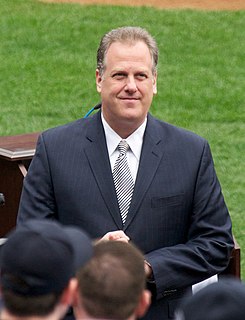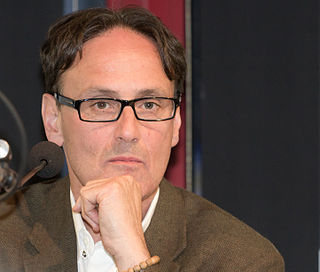A Quote by Rachel Kushner
Leave, with no answer. Move on to the next question.
Related Quotes
I have often had cause to feel that my hands are cleverer than my head. That is a crude way of characterizing the dialectics of experimentation. When it is going well, it is like a quiet conversation with Nature. One asks a question and gets an answer, then one asks the next question and gets the next answer. An experiment is a device to make Nature speak intelligibly. After that, one only has to listen.
To be a scientist you have to be willing to live with uncertainty for a long time. Research scientists begin with a question and they take a decade or two to find an answer. Then the answer they get may not even answer the question they thought it would. You have to have a supple enough mind to be open to the possibility that the answer sometimes precedes the question itself.
What was the question? ...Oh. Where do I get my crazy ideas? Answer: sleep-fairy, walk-fairy, shower-fairy. Book-fairy. And in these last few years, from my wife. Now when I have questions I ask her and she tells me the answer. If you haven't already, I'd suggest you want to find your soulmate, as soon as you can. Next question?
Curiosity and listening [are the principles to an excellent interview]. I never go into an interview with a dedicated list of questions in which I will not deviate. You must be curious about the subject and listen to his answer and ask the next question off that rather than the next question on your list.
Tennis is a great game, a great sport because you're out there by yourself, so you have to move on to the next point, next game, next set, whatever. It's the same thing in basketball. If you miss a shot, you move onto the next one. If you turn it over, you move onto the next play. That certainly helped me.
A dialogue is very important. It is a form of communication in which question and answer continue till a question is left without an answer. Thus the question is suspended between the two persons involved in this answer and question. It is like a bud with untouched blossoms . . . If the question is left totally untouched by thought, it then has its own answer because the questioner and answerer, as persons, have disappeared. This is a form of dialogue in which investigation reaches a certain point of intensity and depth, which then has a quality that thought can never reach.






































